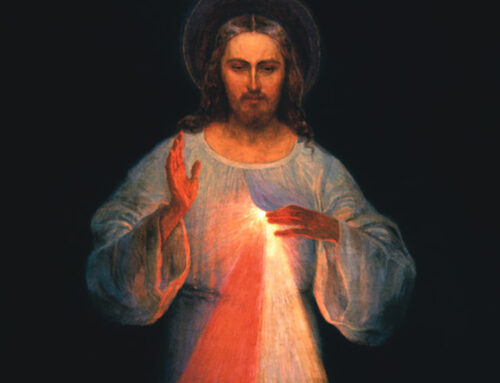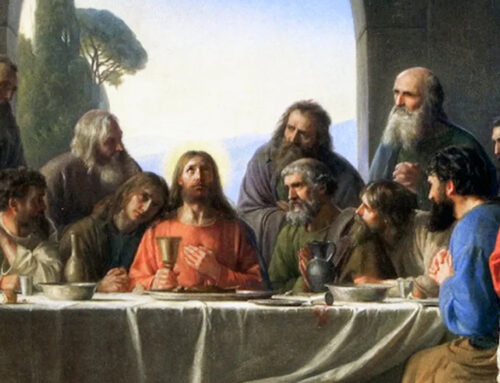Homily for Saturday of the Thirty-second Week in Ordinary Time
Readings of the Day
Our gospel passage today — the story of the persistent widow — is obviously meant to teach us a fundamental Christian truth: “Pray always, without becoming weary.”
But this essential lesson takes on a fascinating layer of meaning when we hold it up with our first reading from the book of Wisdom. To provide some context, this passage is part of a wider narrative in which the author of Wisdom reflects on the Exodus events — the story of Moses and the deliverance out of Egypt.
In the passage we just heard, the Angel of the Lord is “bounding down from heaven’s royal throne” upon the doomed land of Egypt as it lay in unsuspecting “peaceful stillness” — “bearing the sharp sword of God’s inexorable decree.”
This is the moment, of course, in which God renders the final and most terrible plague upon Egypt — the death of the firstborn sons — and as the text says so starkly: “He filled every place with death.”
Now, what on earth does this have to do with the parable of the persistent widow?
Remember the persistence of Moses! Remember how again and again, he approached Pharaoh — an unjust judge who neither feared God nor respected any human being. Moses appeared tirelessly before Pharaoh’s throne, demanding justice. Imploring that God’s people be vindicated, set free at last!
The judge in Jesus’ parable happened to be much wiser than Pharaoh, however. After being absolutely badgered by the widow, the judge finally gives in, saying: “While it is true that I neither fear God nor respect any human being, because this widow keeps bothering me I shall deliver a just decision for her — lest she finally come and strike me!”
Would that Pharaoh had learned this hard lesson! Would that Pharaoh had said to himself: “I don’t fear God, and I don’t respect Moses — but lest the God of the Israelite people come and strike me, I’ll render justice and set them free.”
But no. Pharaoh refused. His heart was hardened! And the land of Egypt was certainly struck.
There is a further step of interpretation we ought to make, however. As Christians, we read the whole Exodus event through the lens of the Life, Death and Resurrection of Jesus. He is the One who, in His Person, set his people free, rendering perfect and definitive Justice upon sin and death — nailing them to the Cross once and for all.
Whereas the judge in our parable sought to avoid being struck by the persistent widow, Jesus freely submitted to all our strikes out of perfect, patient love. Whereas the Israelites were spared by the blood of the sacrificial lambs spread on their doorposts, we are now spared by the Precious Blood of Jesus!
Jesus Christ is our vindication. Jesus Christ is our justice.
We pray for this justice in every single Mass. How speedily God answers our prayers! — Without delay, the Church’s tireless, daily prayer is answered: The Spirit bounds down from heaven, and the bread and wine become for us the Body and Blood of Jesus, our JUSTICE! The question for each of us becomes, therefore: when the Son of Man comes upon this altar — will he find faith? Ask for the faith to believe. He will answer quickly.




